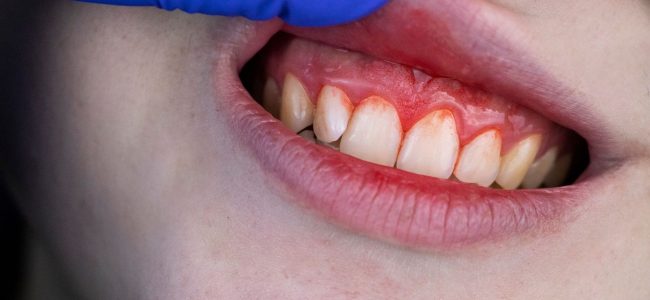Does Gingivitis Go Away?
Do you have inflamed, red gums? Then you may be suffering from gingivitis. Gingivitis is the beginning of gum disease, which, if left untreated, can lead to tooth decay and pain. But gingivitis isn’t always painful for everyone. For this reason, it can be hard to diagnose right away, especially if you aren’t visiting the dentist regularly. If you do recognize or have been told by your dentist that you have gingivitis, you may be wondering if it will go away. Is it treatable, and if so, how long will it take?
Causes of Gingivitis
Gingivitis is caused by bacteria in the mouth. The bacteria live along the gum line. This type of bacteria is known as plaque and sticks to your teeth around the gums. Those that don’t practice good oral hygiene on a regular basis are more prone to developing gingivitis than those that brush and floss regularly.
However, even if you have a regimented oral healthcare routine, you can still develop gingivitis. Diabetes, menopausal women, pregnant women, or those with AIDS or leukemia are all more prone to developing gingivitis from inflamed gums. If you suspect you may have gingivitis, you will want to talk to your dentist right away.
Symptoms of Gingivitis
Recognizing the symptoms of gingivitis is important to getting started with treatment as soon as possible. If you suffer from gingivitis, the gums will be red, swollen, and sometimes painful.
Gums will also bleed, especially when you brush your teeth. Gingivitis left untreated may also lead to painful white or yellow sores in the mouth.
Treatment of Gingivitis
Gingivitis is treatable. Generally, after beginning treatment, gingivitis will go away in about ten days. This depends, however, on the severity of the gum disease and the reason you develop gingivitis in the first place.
For instance, diabetics will need more intense and possibly longer treatment than someone else who simply didn’t practice adequate oral hygiene. If you suffer from a vitamin C deficiency, you will need to talk to your doctor about restoring vitamin C levels to prevent gingivitis from returning.
Treatment can include regularly brushing your teeth, rinsing with warm salt water, gently massaging the gums, or taking medications for a certain amount of time. If you have a severe case of gingivitis, it could take longer than ten days for it to go away. Some severe cases may require a deep cleaning or even surgery to correct the problem long-term. Very serious cases of gum disease can require bone grafts.
Gingivitis Prevention
The best way to treat gingivitis is to prevent it altogether through best oral hygiene practices. It is important that you brush your teeth regularly, floss often, and make it a priority to visit the dentist every 6 months as recommended. This can save a lot of pain and headache in the long run and can go a long way in the overall prevention of gum disease.
Good oral hygiene also helps prevent cavities or decay of the teeth. But good oral hygiene isn’t just about the mouth. It has been shown that oral hygiene also plays a role in overall health and wellness. Make oral hygiene an important part of your daily routine so that you can not only be proud of your pearly white smile but also feel your best.
The ultimate key to gingivitis treatment is to catch it in the early stages when treatment is less severe and less time-consuming. Visiting your dentist regularly, knowing the symptoms, and practicing good oral hygiene are all great ways to combat gingivitis.
For more information about prevention, symptoms, and treatment, contact Ideal Dental to schedule an appointment.
